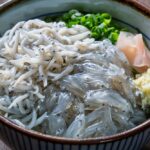Is Fish Halal?
In the intricate realm of Islamic dietary laws, the question of whether fish is deemed halal represents a compelling intersection of faith, ethics, and cultural practices. And the good news is essentially all types of seafood are Halal suitable, and this is based on verse 5:96 of the Qur’an:
“Lawful to you is what you catch from the sea and use for food as provision for yourself and for the travellers”
Since seafood is dealt with differently in the scripture than land animals, it does not require the same kind of religious ritual slaughter that is prescribed for other Halal animals, such as cows, goats, and chickens.
But this topic, ripe with theological and jurisprudential layers, invites a deeper examination of how different Islamic schools of thought approach the permissibility of seafood consumption. It’s essential when eating Halal food you know it’s good to eat.
Given the variance in interpretation and application across Sunni and Shia denominations, understanding the criteria that classify fish as halal or otherwise is essential for adherents seeking to align their dietary habits with religious mandates.
But contemporary issues such as sustainability, ethical sourcing, and the advent of modern aquaculture techniques add layers of complexity to traditional rulings, challenging Muslims to consider not only the legality but the morality of their food choices.
As we venture into this nuanced discussion, it becomes clear that the question of fish’s halal status is not merely a matter of religious compliance, but a reflection of broader ethical considerations that resonate within and beyond Islamic communities.

The Qur’an says anything caught from the sea is lawful
Understanding Halal Dietary Laws
Halal dietary laws, rooted in Islamic jurisprudence, provide comprehensive guidelines on what Muslims are permitted to eat and drink, ensuring that all consumed food adheres to religious principles.
The importance of fish in Islamic cuisine cannot be overstated, offering significant nutritional benefits within a halal diet. Despite common misconceptions, many fish varieties are embraced, with historical significance and a plethora of traditional recipes underscoring their value.
The exploration of halal fish options, alongside considerations of fish farming practices for halal certification, highlights the community’s commitment to dietary integrity. Additionally, environmental concerns and the role of fish in promoting a healthy lifestyle are addressed, ensuring inclusivity even for Muslims with seafood allergies.
This comprehensive approach fosters a sense of belonging and adherence to faith through mindful eating practices.
Theological Basis for Fish Consumption
Building on the understanding of Halal dietary laws and the significance of fish in Islamic cuisine, it is essential to explore the theological underpinnings that guide the consumption of fish within Islamic tradition.
Fish, recognized as a permissible protein source, carries profound significance in Islamic cuisine, underscored by its historic consumption and mentioned in religious texts. The inclusion of fish in a halal diet is not only rooted in tradition but also aligned with the health benefits it offers.
The role of fish in religious rituals, combined with sustainable fishing practices, underscores the environmental stewardship valued in Islam. Fish farming practices and their impact on halal certification highlight the careful consideration given to dietary laws, while the cultural diversity of fish dishes in Muslim-majority countries reflects the rich tapestry of Islamic culinary traditions.
The economic importance of the halal fish industry further demonstrates the integral role of fish within the Islamic dietary framework, ensuring its availability and adherence to religious guidelines for pregnant and breastfeeding women, and emphasizing the need for environmental sustainability in fishing practices.
Different Islamic Schools of Thought
Understanding the diverse Islamic jurisprudential perspectives is crucial when exploring the permissibility of seafood within various Muslim communities.
The Hanafi interpretation restricts permissible seafood to fish, viewing other sea creatures with caution, especially concerning the permissibility of crustaceans.
Contrarily, the Shia perspective and broader Sunni viewpoints offer a more inclusive stance towards seafood, aligning closely with Halal seafood guidelines that accommodate a variety of sea life.
The distinctions between kosher fish and halal fish further underscore the importance of clear Halal certification processes.
As aquaculture evolves, maintaining halal standards becomes increasingly challenging, emphasizing the need for transparent seafood labelling.
Trusted certifiers play a pivotal role in ensuring adherence to Halal guidelines, reassuring Muslim consumers about the Halal status of their seafood choices.
Conditions Affecting Fish’s Halal Status
Several factors, including the species, method of capture, and processing, critically influence the Halal status of fish.
Kosher fish requirements, for instance, demand visible scales and fins, with the definition of scales varying from the biological standard. Examples of kosher fish include salmon, while sharks and swordfish are non-kosher due to specific scale criteria.
The slaughter and consumption of kosher fish are marked by their removal from water. Jewish views on mixing fish and dairy, alongside Sunni and Shia Muslim perspectives on seafood consumption, highlight the complex interplay of religious doctrine and dietary law.
Sunni Islam generally permits sea game, whereas Shia Islam restricts permissible fish to those with scales. Despite the incomplete list of permitted fish, halal seafood’s acceptability and popularity remain widespread, underlined by its straightforward Halal certification compared to land animals.
Practical Tips for Muslims
For Muslims seeking to adhere to dietary laws, identifying Halal seafood requires knowledge of specific criteria and careful selection. Embracing Halal fish preparation methods ensures compliance with Islamic teachings, while shopping at recognized Halal seafood markets guarantees purity and adherence to dietary laws.
Understanding the health benefits of fish consumption can guide Muslims towards making informed dietary choices, especially during Ramadan when fish serves as a nutritious breaking-of-the-fast meal. Exploring Halal seafood recipes can enhance culinary experiences, incorporating sustainable fishing practices to support environmental stewardship.
Muslims should seek out Halal seafood restaurants and suppliers that prioritize fish farming and Halal standards, offering alternatives for those seeking variety. Knowledge of Halal seafood imports and exports can further assist in maintaining a Halal diet, ensuring a global perspective on permissible seafood consumption.





